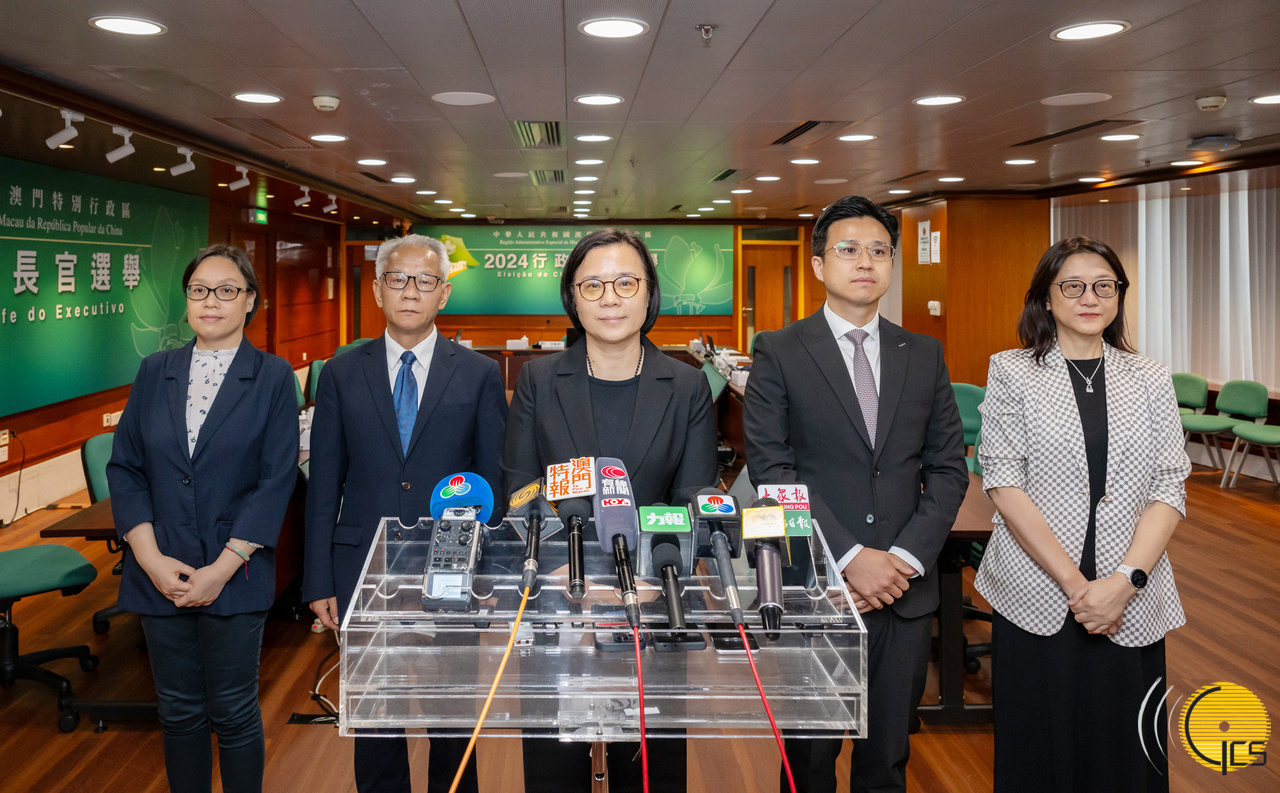 The Electoral Affairs Commission for the Chief Executive Election meets with the press after a meeting.
The Electoral Affairs Commission for the Chief Executive Election meets with the press after a meeting.
The “Oath of Office Declaration” process for membership of the Chief Executive Election Committee has run smoothly, noted the Electoral Affairs Commission for the Chief Executive Election.
The President of the Electoral Affairs Commission, Ms Song Man Lei, told reporters today that as of noon, a total of 392 declarations had been received. Saturday (24 August) would be the final day for members-elect of the Chief Executive Election Committee to submit their declarations for taking office.
Ms Song said she appreciated the strong support and cooperation of members of the Chief Executive Election Committee.
The date for the Chief Executive Election has been set for 13 October. The Electoral Affairs Commission has published the timetable for the procedures relating to the Chief Executive Election.
Individuals interested in becoming a candidate for the post of Chief Executive may submit, during a period running from 29 August to 12 September inclusive, a form applying to be a nominee.
During the nomination application period, individuals interested in running in the election, or their representatives, can visit the election affairs reception counter at the Public Administration Building, to obtain the “Nomination Form for Chief Executive Election Candidate” and return it within the nomination application period.
According to the Chief Executive Election Law, individuals interested in standing as a candidate for the post of Chief Executive must receive at least 66 nominations drawn from among those people that are members of the Chief Executive Election Committee.
Additionally, such individuals must also submit and sign a declaration affirming their sincere support for the Macao Special Administrative Region (MSAR) Basic Law and their loyalty to the People's Republic of China and its MSAR.
Ms Song stated today that on receipt of a form on behalf of a nominee, the Electoral Affairs Commission would conduct an eligibility review of the nominated individual. The MSAR’s Committee for Safeguarding National Security would assess whether the applicant upholds the MSAR Basic Law, and whether they are loyal to the People's Republic of China and its MSAR.
The timetable for the procedures relating to the Chief Executive Election had been uploaded to the Chief Executive Election website (www.ece.gov.mo).
According to the timetable, the latest date for announcing the polling stations for the Chief Executive election is 18 September, and the campaign period will run from 28 September to 11 October.
The Electoral Affairs Commission had mulled the option of using the China-Portuguese-speaking Countries Commercial and Trade Service Platform Complex as the polling venue; and as a place where prior to the election, candidate manifestoes could be presented and question-and-answer sessions could be held. The facilities there were deemed suitable in a number of aspects. The Electoral Affairs Commission conducted an on-site inspection this morning, and an official announcement would be made once the details were finalised.
According to the Chief Executive Election Law, the Electoral Affairs Commission is required to organise at least one manifesto presentation and question-and-answer session for each candidate for the post of Chief Executive, with all members of the Chief Executive Election Committee invited to attend each presentation and session. The Electoral Affairs Commission planned to hold candidate manifesto presentations and question-and-answer sessions on the first day of the campaign period, which is scheduled for 28 September.



